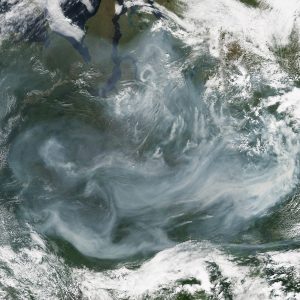The Stream, October 11: Sand Mining, Sea Level Rise Threaten Communities In India
The Global Rundown
The convergence of sand mining and rising global sea levels is putting communities in Tamil Nadu at risk of floods. Pakistan’s government is struggling to end energy shortages by 2018, in part by developing more hydropower. Thailand plans to build a water pipeline to the island of Samui, but it won’t come in time to alleviate the current drought. As the world prepares to enact the Paris climate agreement, cities will play a key role. Police in North Dakota continued to arrest more than two dozen protesters demonstrating against the Dakota Access pipeline.
“If you come back in six months, there may not even be a house left.” –Chandani Chandracruz, a resident of southern Tamil Nadu, on a combination of sea level rise and sand mining that has exposed coastal communities to floods and saltwater intrusion. (Guardian)
By The Numbers
30,000 cubic meters Amount of water that will be carried each day by a proposed pipeline connecting Thailand’s mainland with the island of Samui, where a drought has forced water rationing. Bangkok Post
2 percent Amount of economic growth lost each year in Pakistan due to energy shortages. Hydropower is a major component of the government’s plan to generate enough power to meet demand by 2018. Reuters
Science, Studies, And Reports
Cities around the world will play a crucial role in cutting carbon emissions and realizing the Paris climate agreement, which goes into effect next month. Experts estimate that $57 trillion will need to be invested over the next two decades in water, transportation, and energy infrastructure to meet the goal. Reuters
On The Radar
Police arrested 27 more protesters near the site of the Dakota Access oil pipeline in North Dakota, which resumed construction after an injunction was lifted Sunday. Opponents of the line fear that it will contaminate water supplies and destroy sites that are culturally significant to the Standing Rock Sioux. Guardian
A news correspondent for Circle of Blue based out of Hawaii. She writes The Stream, Circle of Blue’s daily digest of international water news trends. Her interests include food security, ecology and the Great Lakes.
Contact Codi Kozacek




